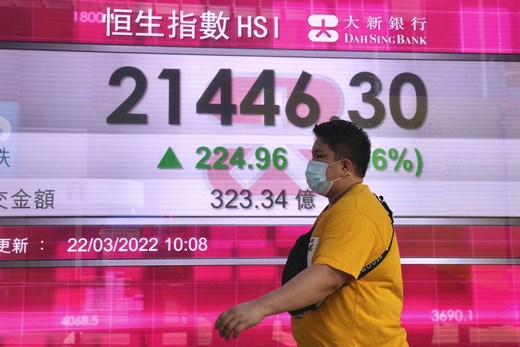Kate Lin: Welcome to Morningstar. Chinese e-commerce giants are branching out, this time to the medical field. Alibaba (09988) owns AliHealth (00241) while JD.com (09618) owns JD Health International (06618). So, how does China's tech space interact with the traditional healthcare sector? Kai Wang, Senior Equity Analyst at Morningstar, is here to tell us.
Hi, Kai. Tell us what is healthcare e-commerce and why are e-commerce giants venturing into this space.
Kai Wang: Hi. So, healthcare e-commerce is basically the selling of healthcare products over the internet, including pharmaceutical drugs that require prescription and OTC drugs as well. So, there are more requirements than traditional e-commerce such as warehouses and real-life medical professionals who run these platforms since you're dealing with safety concerns and people's lives here. And they have more of a moat here, given the fact that they're not dealing with competitors from all angles like a traditional e-commerce platform would.
JD and Baba want to get into this space because China is going through digitization of its healthcare industry, and they are going through an initiative where they want to combine the internet and hospitals and healthcare together. So, the initiative is still in its early stages and so they want to establish a presence there.
Lin: Right. So, both Baba and JD under our coverage have wide economic moats. Does it help their healthcare venture?
Wang: Yeah. So, both of these platforms are very big, and they have very good logistic capabilities outside of just e-commerce, and they also have good AI capabilities as well. So, with drugs and healthcare products, you want to be as timely and efficient as possible, so they are able to leverage this part to get next-day or same-day deliveries. In addition, both healthcare subsidiaries are able to leverage their parent user base as low-cost traffic acquisitions, which gives them another advantage in ramping up the new platforms. So, the ability to save on sales and marketing expenses is more important than you think. We've seen a lot of traditional e-commerce platforms punished lately as money is getting more expensive with interest rates going up. So, therefore, investors, they want to see profit rather than unbridled growth now through just cash burn and subsidies that we've seen with a lot of platforms. So, the cash burn is going to be likely lower here in the creation of a new e-commerce platform.
Lin: Right. So, investors have other concerns. So, they're unsettled by the regulatory reset in China recently. Are these risks pass on to their healthcare arms?
Wang: Yeah. So, it has in terms of the spooking of the investors just because it's come down on the entire sector. And the issue of data privacy, which is something that China has emphasized, that's always going to be there since you're dealing with medical records. But none of the regulations have really specifically targeted the healthcare industry. But there are some regulations lately for the industry, and actually these regulations are probably going to help in the long run. They want to ensure that other bad actors don't just come into the industry and start selling e-commerce or healthcare ecommerce and then just drugs. So, they implemented greater barriers and greater rules in order to sell pharmaceutical drugs over the internet.
The biggest concern and risk right now is whether or not the average Chinese consumer is going to be acceptable with buying drugs over the internet. It's not as mature as their U.S. counterparts with buying drugs online. But in the long run, we think that these regulations should benefit consumers perception of buying drugs online.
Lin: I see. Between AliHealth and JD Health which one do we like better?
Wang: So, they are actually pretty similar in the business model, but JD has better logistics capabilities and coverage. The company indicated that it was able to conclude 80% in their same-day and next-day deliveries, whereas AliHealth is only able to include about 60% in this criterion. So, based on logistic capabilities right now, JD has the upper hand here.
Lin: Wonderful. Thank you so much, Kai. For Morningstar, I'm Kate Lin.











.png)






.jpg)





